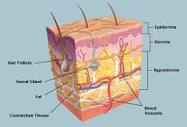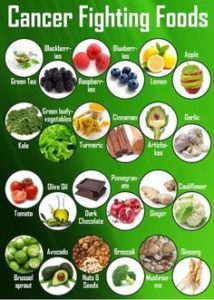Aging, inflammation…inflammaging… This post may come across as a commercial for anti-aging skin care. But my goal is to manage my long-term and late stage side effects, reduce pain, reduce my risk of secondary cancers, etc.
I am a long-term cancer survivor who underwent aggressive, high-dose chemotherapy and radiation and came away with
For the record, it is important to understand that the damaging effects of chemotherapy and radiation are well-understood by conventional oncology. I am not revealing some big secret here. I’m trying to cope with the fall-out resulting from my “life-saving” therapies…
One thing I know for sure is that evidence-based, non-conventional therapies that have been shown to fight/decrease inflammation, aging, while detoxifying, are helping my heal and manage my many side effects.
I should also mention that clean nutrition is the heart of any/all therapies to manage health and the side effects that result from chemotherapy and radiation.
A new study, published in the journal Redox Biology, also highlighted a compound — N-acetyl-cysteine, or NAC — that is already used in high doses in medical detoxification emergencies. But the researchers said that at much lower levels NAC might help maintain glutathione levels and prevent the routine metabolic declines associated with aging…
Decline of these detoxification pathways, scientists say, are causally linked to cardiovascular disease, diabetes and cancer, some of the primary causes of death in the developed world…
“But pretreatment with NAC increased glutathione levels in the older cells and largely helped offset that level of cell death…”
Also of interest, Hagen said, is the wide range of apparent detoxification potential offered by glutathione. Higher levels of it — boosted by NAC — might help reduce the toxicity of some prescription drugs, cancer chemotherapies, and treat other health issues.
“Using NAC as a prophylactic, instead of an intervention, may allow glutathione levels to be maintained for detoxification in older adults,” the researchers wrote in their conclusion…”
“You can’t stop yourself from aging, but you can make dietary and lifestyle changes to slow certain aging processes and reduce your risk of age-related disease- supplementation that reduces inflammation. That’s why you’ll see this article use terms like “support healthy aging” rather than “anti-aging.”
The main causes of aging include accumulated cellular damage caused by reactive molecules called free radicals and the shortening of telomeres, which are the structures located at the ends of chromosomes that play an important role in cellular division (1Trusted Source).
Following a nutrient-dense diet, exercising regularly, and avoiding smoking and excessive alcohol intake are the best ways to support healthy aging and slow the effects of aging on your body.
Here are 14 supplements that may help slow the effects of aging.
Curcumin
Curcumin — the main active compound in turmeric — has been shown to possess powerful cellular protective properties, which are attributed to its potent antioxidant, anti inflammatory effects.
A process called cellular senescence occurs when cells stop dividing. As you age, senescent cells accumulate, which is believed to accelerate aging and disease progression (2Trusted Source, 3Trusted Source)…
This may be why turmeric intake is associated with a reduced risk of age-related cognitive decline in humans (8Trusted Source).
2. EGCG
Epigallocatechin gallate (EGCG) is a well-known polyphenol compound concentrated in green tea. It offers impressive health benefits, including a reduced risk of certain cancers and heart disease (9Trusted Source, 10Trusted Source, 11Trusted Source).
Plus, this compound may promote longevity and protect against age-related disease…
Additionally, one review suggests that daily green tea intake may suppress brain aging by activating nerve cells and reducing stress (15Trusted Source).
You can get EGCG in your diet by drinking green tea or taking concentrated green tea extractsupplements.
3. Collagen
As you age, the production of collagen — a protein that helps maintain skin structure — slows, leading to accelerated signs of aging like wrinkles.
Some research suggests that supplementing with collagen may reduce signs of aging, including wrinkles and dry skin (16Trusted Source)…
Other human studies show that collagen supplements may improve skin elasticity, reduce wrinkles, increase skin hydration, and improve nail growth (16Trusted Source)…
4. CoQ10
Coenzyme Q10 (CoQ10) is an antioxidant, anti- inflammation that your body produces. It plays an essential role in energy production and protects against cellular damage (18Trusted Source).
Research suggests that levels of CoQ10 decline as you age. Supplementing with it has been shown to improve certain aspects of health in older individuals.
For instance, a 4-year study in 443 older adults demonstrated that supplementing with CoQ10 and selenium improved overall quality of life, reduced hospital visits, and slowed physical and mental deterioration (19Trusted Source).
CoQ10 supplements may work by reducing oxidative stress, a condition characterized by an accumulation of free radicals that accelerates the aging process and the onset of age-related disease (20Trusted Source).
Additionally, CoQ10 supplements may benefit heart health by reducing stiffness in your arteries, lowering blood pressure, and preventing the buildup of oxidized cholesterol in your arteries (21Trusted Source)…
5. Nicotinamide riboside and nicotinamide mononucleotide
Nicotinamide riboside (NR) and nicotinamide mononucleotide (NMN) are precursors to the compound nicotinamide adenine dinucleotide (NAD+).
NAD+ is found in every cell in your body and is involved in many critical processes, including energy metabolism, DNA repair, and gene expression (22, 23Trusted Source).
Its levels decline with age. This decline may be associated with accelerated physical decline and the onset of age-related diseases like Alzheimer’s (23Trusted Source)…
Nonetheless, a 30-day study in both mice and a small number of people ages 45–60 found that NMN supplements significantly lengthened telomere length in each group. The shortening of telomeres plays a central role in the aging process (26Trusted Source)…
6. Crocin
Crocin is a yellow carotenoid pigment found in saffron, a popular, pricey spice that’s commonly used in Indian and Spanish cuisine.
Human and animal studies have shown that crocin offers many health benefits, including anticancer, anti-inflammatory, anti-anxiety, antidepressant, and antidiabetes effects. It may also protect against age-related cognitive decline (28Trusted Source, 29Trusted Source)…
Crocin has also been shown to help prevent aging in human skin cells by reducing inflammation and protecting against cellular damage induced by UV light (32Trusted Source, 33Trusted Source)…
7. Vitamin C
Vitamin C functions as a powerful antioxidant in your body, helping to protect cells from oxidative damage. It also plays important roles in immune function, inflammation regulation, and many other processes that are essential to healthy aging (34Trusted Source)…
For example, in a study in 80 adults with an average age of 60, those with higher blood levels of vitamin C performed better on tasks involving attention, focus, memory, decision-making, recall, and recognition (35Trusted Source).
Vitamin C is also essential for skin health. Supplementing may improve skin hydration, stimulate collagen production, and safeguard against wrinkle development and premature aging due to sun exposure (36Trusted Source).
What’s more, some evidence suggests that supplementing with vitamin C improves immune function in older adults (37Trusted Source)…
8–14. Other anti-aging supplements
The following supplements may also support healthy aging. But keep in mind that more human research is needed on each of them.
8. Vitamin E
Vitamin E plays important roles in immune function and the regulation of inflammation.
Some evidence suggests that older adults need more of this vitamin than younger adults to maintain health during the aging process (39Trusted Source).
9. Theanine
L-theanine is an amino acid concentrated in certain teas, including green tea.
Some research indicates that supplementing with L-theanine may help improve brain function in middle-aged adults and protect against age-related liver dysfunction, oxidative stress, and inflammation (40Trusted Source, 41Trusted Source, 42Trusted Source).
10. Rhodiola
This medicinal plant has potent anti-inflammatory properties.
Several animal studies suggest that rhodiola may help promote longevity. However, more human research is needed (43Trusted Source, 44Trusted Source).
11. Astragalus
Astragalus is a stress-reducing herb used in traditional Chinese medicine…
12. Fisetin
Fisetin is a flavonoid compound that’s considered a senotherapeutic, meaning it may kill senescent cells.
Rodent studies suggest that it may reduce the number of senescent cells in tissues, extend life span, and protect against brain aging (47Trusted Source, 48Trusted Source).
13. Resveratrol
Resveratrol is a polyphenol antioxidant found in grapes, berries, peanuts, and red wine that may promote longevity by activating certain enzymes called sirtuins.
14. Sulforaphane
Sulforaphane is a sulfur compound concentrated in cruciferous vegetables like broccoli that’s known to have powerful anti-inflammatory properties.
Recent studies have found that sulforaphane increases the life span of roundworms and prevented age-associated heart problems in mice (50Trusted Source, 51Trusted Source)…”




